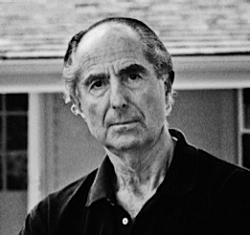In an interview last month with the French magazine Les inrockuptibles, Philip Roth, who will turn 80 next year, said, “I’m done,” adding, “Nemesis will be my last book.” The news has been slow to make it to American shores—that translation comes via Salon today, which used an Internet translator to convert it to English. I first heard about the interview on Twitter a few days ago via its Italian version, which appeared more recently. It seemed unlikely (and I don’t know Italian), but Lori Glazer, the publicity director for Houghton Mifflin, which publishes Roth, informed Salon that Roth told her “it was true.”
While the news feels sudden, it’s actually a fairly long time coming. A year ago, Roth told the Financial Times, “I’ve stopped reading fiction… I don’t have the same interest in fiction that I once did.” This was on the heels of his telling BBC’s Radio 4 in England, after he won the Man Booker International Prize, that Nemesis was “the end of the line after 31 books.” Granted, he said in that same interview, “I’d like to have one big, final idea, one big book to work on until the day I die.” One year later, though, it sounds like he has not had that “big, final idea,” and has decided to put the typewriter away instead.
The recent news that he had finally agreed to work closely with a biographer also suggested that perhaps he saw the end of his career approaching. And his recent contretemps with Wikipedia further implied a focus on his legacy.
But today on Twitter and elsewhere many people are reacting with incredulity to the news. Part of this, of course, is that plenty of artists have come out of retirement before. There’s no reason Roth can’t wake up tomorrow and get the Olivetti out. Indeed, another reason for that incredulity is the sense that, if Roth doesn’t get out that Olivetti—actually, I think he’s been using a computer lately—there isn’t much else he’s likely to do. As that Financial Times interview reported, Roth “does not travel these days,” and he appears to lead a very quiet life, divided between his 1790 clapboard house in Connecticut and seemingly uneventful winters in Manhattan. His routine for years now has, on the visible surface, at least, resembled that of fictional writer E.I. Lonoff, described in Roth’s best novel, The Ghost Writer. Lonoff, as Roth’s alter ego Nathan Zuckerman learned, spent all his time in the Berkshires turning sentences around. When there are no sentences to turn around, what will there be left to do?
Update: David Remnick, who profiled the writer a few years ago, says that Roth’s remarks are “a definitive version of what he has been telling friends privately for a couple of years.”
